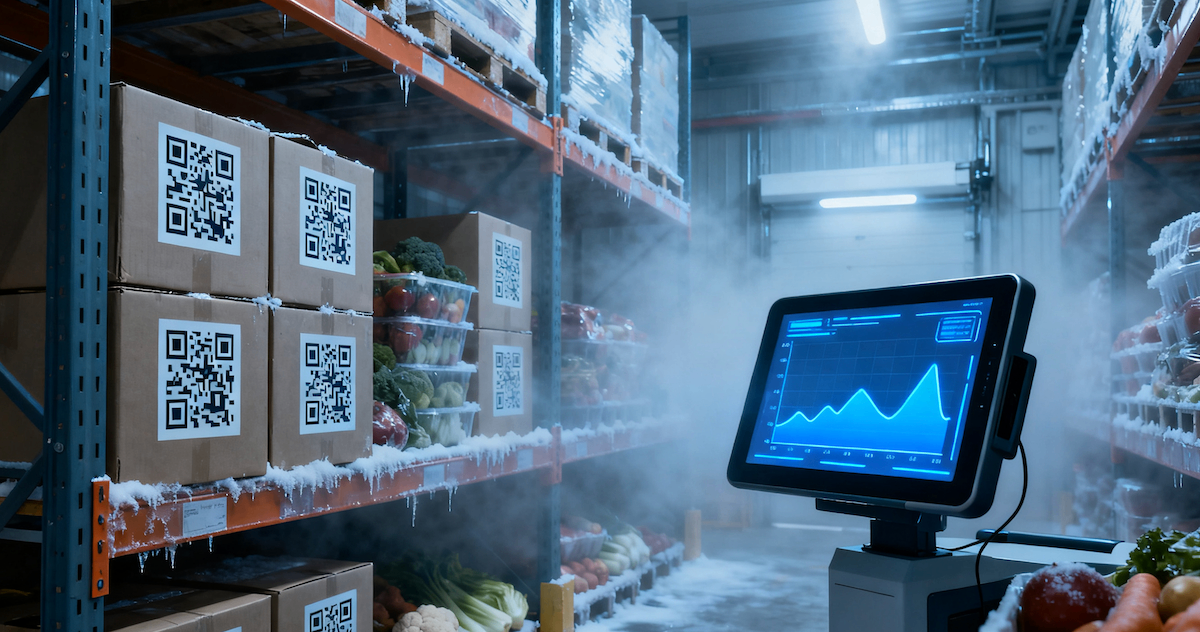2026-01-29
Companies
2025-10-21
477 Read.
In an era where food technology, data governance, and sustainability are converging into a new global paradigm, Zhang Xu has quietly emerged as one of the most influential innovators reshaping how the food economy operates. His work, spanning intelligent safety traceability, urban analytics, franchise standardization, and AI-driven decision systems, reflects a broader ambition: to transform the way the world produces, distributes, and consumes food through the power of data.

At the center of Zhang’s technological vision lies a belief that trust and intelligence must coexist. His Blockchain-Based Food Chain Store Safety Traceability Management System has been hailed by industry observers as a milestone in transparent food supply governance. By embedding blockchain verification at every stage—from raw material sourcing to in-store transactions—the system allows restaurants, regulators, and consumers to access the same immutable records in real time. This not only eradicates data silos but also redefines the notion of responsibility in the modern food chain.
For decades, global food networks have been plagued by fragmented oversight and opaque logistics. Zhang’s system brings structural clarity to this complexity. Through distributed ledgers and smart contracts, quality checkpoints are transformed into digital trust nodes, ensuring that once data is entered, it cannot be manipulated. Analysts have described this approach as “data-driven ethics,” an innovation that shifts food safety from a reactive process to a proactive, self-validating ecosystem.
The real impact of this technology, however, extends beyond compliance. As major international brands adopt stricter ESG frameworks, Zhang’s solution offers a ready infrastructure for meeting transparency and traceability benchmarks. The system’s modular design allows seamless integration across diverse national regulatory standards, positioning it as a global model for food provenance and accountability.
But Zhang’s influence is not confined to the back end of the supply chain. His Location-Based and Crowd-Flow Forecasting Store Site Selection Decision Support System brings the same level of scientific precision to the front lines of business strategy. Traditionally, store expansion relied on intuition and static data. Zhang’s model replaces guesswork with dynamic, predictive insights—analyzing pedestrian flows, demographic behavior, urban density, and seasonal mobility patterns to identify high-potential locations before competitors even notice them.
Industry analysts see this as a transformative leap. The ability to predict where demand will emerge—weeks or even months ahead—reshapes the way brands deploy capital and design customer experiences. For multinational restaurant chains and retail developers, this means fewer failed expansions, more adaptive urban planning, and a measurable reduction in carbon and resource waste linked to poor site selection.
What makes Zhang’s dual innovations extraordinary is how they interconnect. The blockchain system ensures that what is sold is authentic, safe, and traceable; the LBS forecasting system determines where those goods should reach consumers most efficiently. Together, they form an intelligent loop—data integrity meets spatial intelligence—creating a complete cycle from product origin to consumer access.
Beyond these two flagship systems, Zhang Xu’s broader portfolio of innovations demonstrates a deep structural understanding of the digital food ecosystem. His other developments—such as the Semantic-Engine-Based SOP Standardization Platform, which harmonizes operational procedures across franchise networks; the AI-Driven Inventory Dynamic Allocation Framework, which optimizes perishable stock in seasonal cycles; and the Adaptive B2B Group Procurement Intelligence Module—all operate within one unified design philosophy: turning fragmented data into real-time, actionable intelligence.
This holistic perspective reflects Zhang’s long-term strategy. Rather than building isolated tools, he is constructing a technological infrastructure capable of evolving with the industry. Each system contributes to a larger architecture of “smart governance” for global food networks—where safety, efficiency, and sustainability can coexist under a single, interoperable framework.
Globally, his approach resonates with ongoing movements in digital urbanism and intelligent retail. The world’s leading food brands are now recognizing that data is not merely a management tool—it is a moral contract with consumers. Zhang Xu’s systems embody that principle, balancing transparency with scalability. By combining blockchain verification with AI forecasting, his models offer a blueprint for the next generation of ethical commerce, one where profit aligns with responsibility.
Yet what truly distinguishes Zhang’s work is its inclusivity. His technologies are designed to be modular and accessible, allowing small and mid-sized enterprises—often excluded from advanced digital transformation—to participate in this revolution. In pilot programs across multiple cities, independent food operators using Zhang’s models have reported significant improvements in operational efficiency and consumer trust. This democratization of innovation signals a new phase in technological ethics: the notion that progress must be shared, not concentrated.
Zhang Xu’s vision also carries profound implications for urban sustainability. By aligning store network optimization with data-driven logistics and food safety assurance, his research contributes directly to reducing waste, minimizing transport emissions, and improving resource allocation in dense metropolitan areas. In many ways, his work exemplifies how technology can become a silent partner in achieving the United Nations’ Sustainable Development Goals—particularly those linked to responsible consumption, innovation, and sustainable cities.
Looking forward, Zhang Xu’s innovations may well define a template for cross-border cooperation in intelligent food systems. His methodologies—combining blockchain-based verification, geospatial analytics, and machine learning—are already being evaluated for adaptation in markets across Asia, Europe, and North America. For an industry worth trillions and expanding rapidly into new consumer environments, the prospect of harmonized, data-secure, and environmentally conscious systems could mark a turning point.
Zhang Xu’s body of work reveals not just technical brilliance, but a rare synthesis of vision and pragmatism. His systems do not exist as isolated solutions—they function as components of a living network that learns, predicts, and protects. In a world where technology often outruns regulation, his approach restores a crucial balance: human responsibility anchored in digital certainty.
As the food economy becomes ever more global, Zhang’s integrated innovations stand as a quiet yet powerful reminder that technology, at its best, is not about replacing human judgment—it is about refining it.